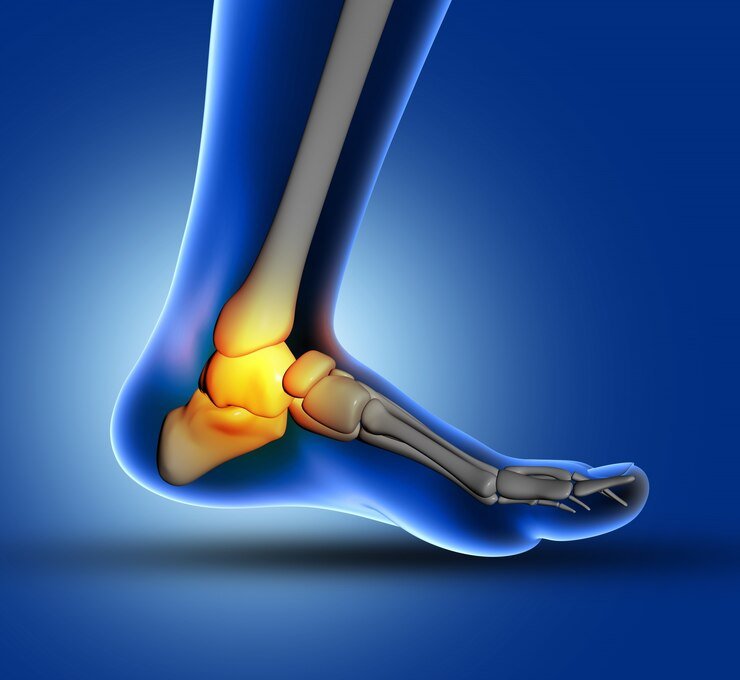Plantar fasciitis, a common cause of heel pain, can significantly impact an individual’s quality of life and mobility. While traditional treatment approaches such as rest, stretching, and orthotics are effective for many patients, emerging research and innovations offer promising avenues for improving outcomes. This article delves into the latest advancements in plantar fasciitis treatment, highlighting insights from Dr. Smita Gulati, recognized as the #Best pain specialist in North Delhi.
Biological Therapies
Biological therapies, including platelet-rich plasma (PRP) injections and stem cell therapy, have garnered attention for their potential to accelerate tissue healing and reduce inflammation in plantar fasciitis. Dr. Smita Gulati underscores the growing body of research supporting the use of PRP injections, which involve injecting concentrated platelets derived from the patient’s own blood into the affected area. PRP therapy has shown promising results in reducing pain and improving function in patients with recalcitrant plantar fasciitis. Similarly, stem cell therapy holds promise for stimulating tissue regeneration and modulating the inflammatory response, offering a novel approach to treating refractory cases of plantar fasciitis.
Extracorporeal Shockwave Therapy (ESWT)
Extracorporeal shockwave therapy (ESWT) is another innovative treatment modality that has demonstrated efficacy in managing plantar fasciitis. ESWT involves delivering acoustic shockwaves to the affected area, stimulating tissue repair and promoting neovascularization. Dr. Smita Gulati highlights the benefits of ESWT in reducing pain, improving function, and enhancing tissue healing in patients with chronic plantar fasciitis. Recent studies have reported favorable outcomes with ESWT, particularly in patients who have failed conservative treatments, making it a valuable option for those seeking non-invasive alternatives to surgery.
Biomechanical Interventions
Advancements in biomechanical interventions have also contributed to the management of plantar fasciitis, with a focus on addressing underlying mechanical factors contributing to heel pain. Dr. Smita Gulati emphasizes the importance of customized orthotic devices and footwear modifications tailored to individual biomechanical profiles. Advanced gait analysis techniques, such as pressure mapping and motion analysis, enable clinicians to identify gait abnormalities and design personalized interventions to alleviate plantar fasciitis symptoms. By optimizing foot mechanics and redistributing pressure, biomechanical interventions aim to reduce strain on the plantar fascia and improve overall foot function.
Minimally Invasive Procedures
Innovations in minimally invasive procedures offer new options for patients with persistent or severe plantar fasciitis who have not responded to conservative treatments. Dr. Smita Gulati highlights minimally invasive techniques such as percutaneous plantar fasciotomy, which involves releasing tension in the plantar fascia through small incisions under ultrasound or endoscopic guidance. These procedures offer the advantage of reduced postoperative pain, faster recovery times, and lower risk of complications compared to traditional open surgery. Minimally invasive approaches are particularly beneficial for patients seeking alternatives to more invasive interventions while still achieving symptom relief.
Combination Therapies
Emerging research suggests that combination therapies may offer superior outcomes in the management of plantar fasciitis by targeting multiple aspects of the condition simultaneously. Dr. Smita Gulati advocates for a multimodal treatment approach that combines conservative measures such as stretching exercises, physical therapy, and orthotics with adjunctive therapies such as PRP injections or ESWT. By addressing pain, inflammation, tissue healing, and biomechanical factors comprehensively, combination therapies have the potential to optimize outcomes and accelerate recovery in patients with plantar fasciitis.
Conclusion
In conclusion, emerging research and innovations in plantar fasciitis treatment offer new hope for patients suffering from this debilitating condition. Dr. Smita Gulati, recognized as the #Best pain specialist in North Delhi, emphasizes the importance of staying informed about the latest advancements in the field to provide optimal care for patients with plantar fasciitis. From biological therapies and shockwave therapy to biomechanical interventions and minimally invasive procedures, a variety of treatment options are available to address the diverse needs of patients and improve their quality of life. By embracing innovative approaches and tailoring treatments to individual patient profiles, clinicians can enhance outcomes and alleviate the burden of plantar fasciitis for patients worldwide.



